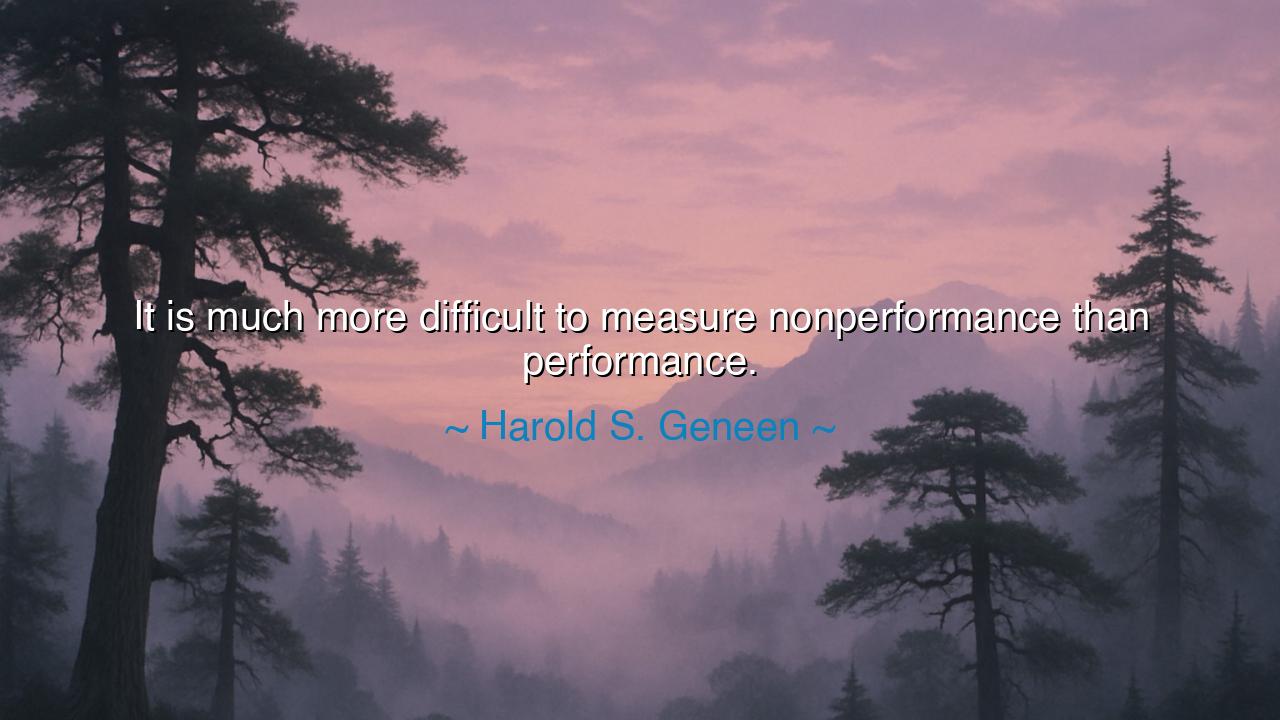
It is much more difficult to measure nonperformance than






Harold S. Geneen, master of business empires, revealed with sharp clarity: “It is much more difficult to measure nonperformance than performance.” In this saying, he uncovers a truth that extends beyond the walls of corporations into the heart of life itself—that it is easy to count what has been done, but far harder to account for what has been left undone. For performance leaves marks, records, and fruits; nonperformance leaves only shadows, absences, and lost opportunities.
The essence of this wisdom lies in the hidden cost of inaction. A soldier’s valor can be seen in battles won, a worker’s worth in tasks accomplished. But how shall one measure the war never fought because courage failed, the harvest never gathered because diligence was absent, or the innovation never born because imagination was stifled? These silent failures of nonperformance weigh upon the world just as heavily—perhaps more so—than the visible record of deeds.
History offers vivid proof. Consider the fall of Rome, not through one great defeat, but through centuries of corruption, neglect, and the failure to reform. The empire’s enemies were not only foreign legions but the nonperformance of its own rulers, who did not build what needed building or correct what needed correction. Their decay was hard to measure day by day, yet in time it toppled the mightiest empire of the ancient world.
So too in the modern age, when the Great Depression swept across nations, leaders scrambled to repair the damage. But much of that ruin had been prepared by years of nonperformance—the failure to regulate markets, to heed warnings, to prevent reckless speculation. These invisible omissions could not be easily weighed at the time, yet their cost was immense, and their measure was written in suffering.
O children of tomorrow, take this lesson to heart: do not measure only what you or others have done; consider also what has been left undone. The undone letter of forgiveness, the unspoken word of encouragement, the unfulfilled duty—these are the silent weights that shape destinies. Geneen teaches us that true accountability requires vigilance not only over deeds accomplished, but over the hidden abyss of nonperformance, for therein lie the roots of many of history’s greatest tragedies.






AAdministratorAdministrator
Welcome, honored guests. Please leave a comment, we will respond soon